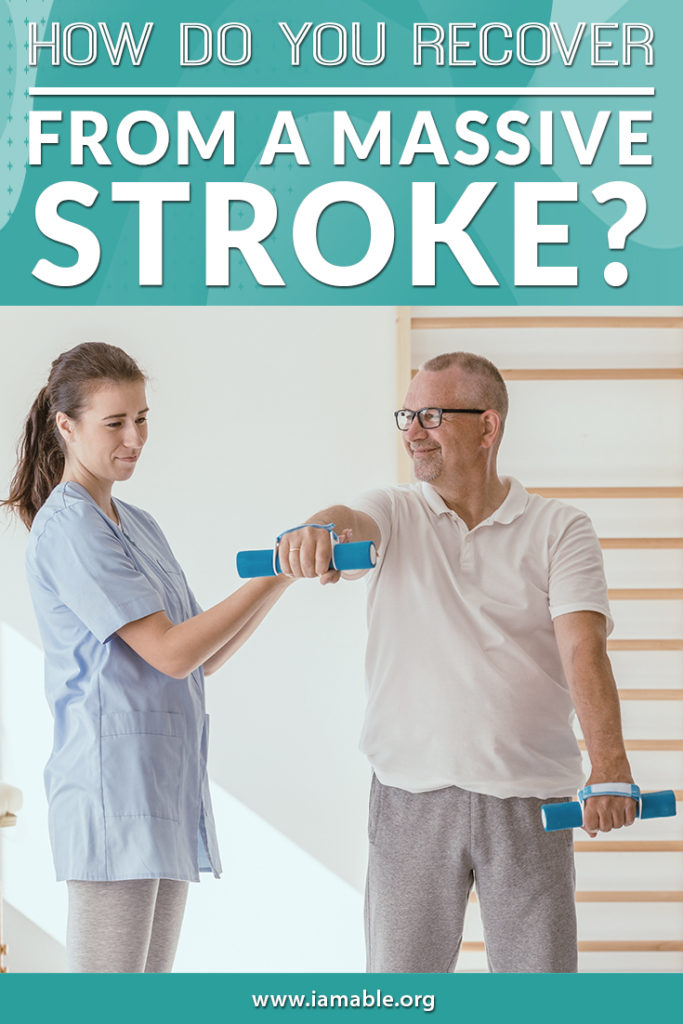Miami, FL 33186

What is the difference between a massive stroke and a general sort of stroke? What types of ongoing issues may occur following a massive stroke? If you are currently recovering from a massive stroke, what are some of the therapies you should know about? We will answer these questions in our article today. Pay particular attention to the section on paralysis recovery if this is one of the long-term symptoms that you are experiencing in the wake of your stroke.
The term massive stroke simply refers to the severity of the stroke. Doctors use the term massive to describe a stoke when a large portion of the brain is denied blood during the episode. However, all strokes, even minor ones, involve part of the brain not getting oxygen for a time. Since a more substantial portion of the brain not getting oxygen causes more significant problems (and a higher risk of death), the stroke is referred to as massive.
Without oxygen, a portion of the brain may die. The long-term effects of a stroke will depend on the parts of the brain affected. About one in five patients die from a stroke because the part of the brain that experiences damage controls vital functions like breathing. If less essential elements of the brain are the ones that die, you may not even know you are suffering a stroke when it happens. So the severity and symptoms of a stroke can vary greatly.
A person who experiences a massive stroke is more likely to encounter a number of these symptoms because a larger area of the brain suffers from the lack of oxygen. Therefore, you may find that you are dealing with several or even all of these long-term effects. However, do not let this list bring you down. We’re also going to look at therapies that can assist in your recovery.
7 Solid Indicators You Are Recovering Well from a Stroke
With these potential complications in mind, let’s consider some potential therapies for someone recovering following a massive stroke. We will focus mainly on paralysis recovery methods. However, you may also benefit from speech therapy, occupational therapy, or psychological counseling, depending on your symptoms and emotional reaction to your new circumstances.
If you experience paralysis following your stroke, occupational therapy will provide you with alternative ways to take care of day-to-day tasks. Of course, you will also want to focus on recovering as much of your function as possible. That is why we want to present these paralysis recovery options.
Grab our free e-book 7 Unbelievably Important Steps to Take to THRIVE after Paralysis by clicking the image below.
